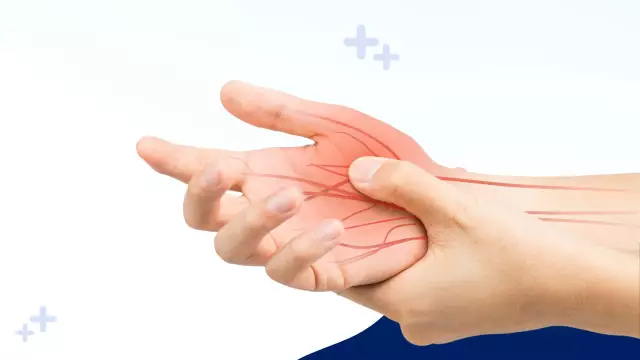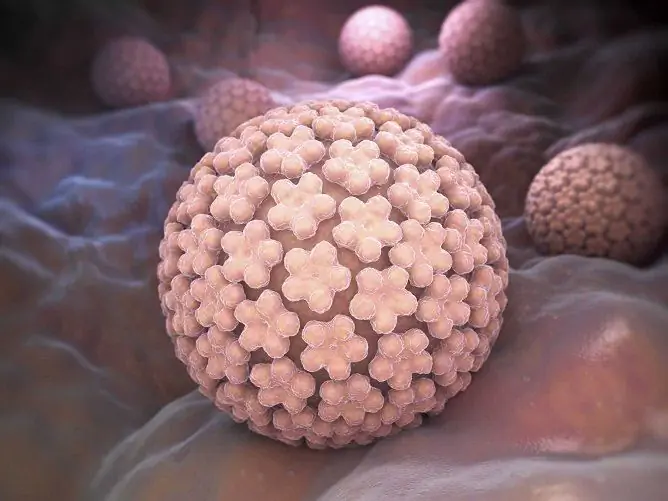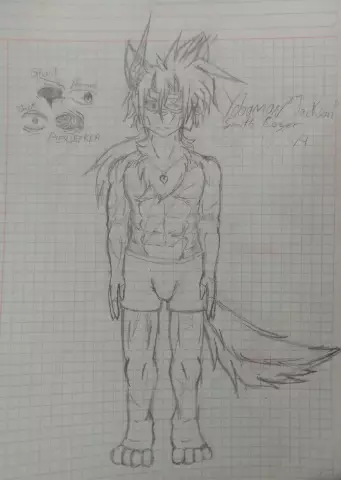- Author Rachel Wainwright wainwright@abchealthonline.com.
- Public 2023-12-15 07:39.
- Last modified 2025-11-02 20:14.
Why does the neck hurt

Throughout life, almost everyone is faced with a problem such as neck pain. It affects both women and men equally often at any age.
Why does the neck hurt? There are many reasons for painful sensations in this area. There are a number of conditions that cause neck pain. It is very important to determine the possible cause and to start treatment in a timely manner. To do this, you must seek the advice of a doctor, and it is desirable to undergo a comprehensive examination.
Causes of Muscle Neck Pain
The main sources of neck muscle pain include:
- Spine diseases;
- Pathologies of the internal organs that are in the neck;
- Inflammatory muscle disease;
- Violation of the blood supply to the muscles of the neck;
- Hereditary pathologies of the muscular apparatus.
Among diseases of the spine, the first and most common reason why the neck muscles hurt is osteochondrosis. It should be distinguished from diseases such as herniated discs, syringomyelia, tuberculosis, and tumors of the spinal column.
With the help of modern research methods, it is possible to determine in which structures and at what level the pathological process is taking place. However, the final diagnosis is made by a neurologist.
Diseases of the spine, one way or another, lead to inflammation of the nerve roots that come out of the spinal cord. Therefore, in order to get rid of neck pain, it is necessary to block the inflammatory process in the intervertebral discs and eliminate the compression of the spinal roots.
Sometimes, in order to understand why the neck muscles hurt, especially after a viral illness or hypothermia, you should carry out such a test: first press on the muscles themselves, and then on the points next to the spine. If, with pressure, a slight aching pain is felt only in the muscle fibers, and they themselves are flabby, one can assume myositis - muscle inflammation.
Diseases of the thyroid gland, trachea and esophagus are possible reasons why the front neck hurts, since quite often the inflammatory process in one organ leads to the fact that the pain spreads to nearby places. If general weakness, increased sweating and palpitations join the pain, this indicates problems with the thyroid gland. Pain with belching and eating food indicates diseases of the esophagus. Cough, wheezing in the lungs and soreness when inhaling cold air indicate pathology of the bronchi and trachea.
With atherosclerosis of blood vessels, varicose veins of the neck and esophagus, pain in the muscles on the side may appear. Why does the neck hurt in this case? This is due to a violation of the blood supply, which leads to the accumulation of toxic substances in the muscle fibers and a lack of nutrition, which together causes unpleasant sensations. Pain of this nature occurs, as a rule, in the evening, or after physical exertion. Ultrasound of the neck vessels helps to confirm this pathology, but in order to make a decision on conservative therapy or surgical treatment, it is necessary to consult an angiosurgeon.
Hereditary muscle disease is a rare occurrence that manifests itself already in infancy. The defining feature of this pathology is a clear increase in muscle volume with their simultaneously persisting weakness.
Why does the neck hurt after sleep
Neck pain can also be associated with prolonged muscle tension or being in one position with little or no movement for 7-8 hours, for example, while sleeping. All this time, especially if a person sleeps in an uncomfortable position, the muscles are in a tense state. This explains why the neck hurts after sleep or prolonged work at the computer.
The mechanism of pain development is as follows:
- Tense muscles squeeze the cervical vertebrae;
- Intervertebral discs pinch the roots of the spinal nerves;
- The compressed nerve endings become inflamed and start sending signals to the spinal cord;
- There is a response, as a result of which the cervical muscles tighten to protect the injured area.
A kind of vicious circle arises, which leads to an inflammatory process. In addition to the vertebrae, tense muscles compress blood vessels in the neck, disrupting circulation, leading to swelling. The pinched nerves cannot transmit the command to relax the muscles and organs.
Diseases of the spine (hernia, osteochondrosis) and injuries of the cervical spine can aggravate the development of muscle tension and become another reason why the neck hurts after sleep. Sometimes it happens the other way around: an uncomfortable posture while resting at night contributes to the development of osteochondrosis.
Why do the lymph nodes in the neck hurt?
Often neck pain is associated with inflammation of the lymph nodes called lymphadenitis. The main function of these formations is to protect nearby organs from tumors and infections. Painful inflammation of the lymph nodes in most cases occurs under the influence of any infectious agent, less often due to a tumor-like lesion.
You can understand why the lymph nodes in the neck hurt, and what is the cause of the inflammatory process, by finding a focus of infection, which, as a rule, is located near the place of their localization. It can be acute respiratory illness, ear or throat problems. Concomitant signs of lymphadenitis are headache, fever, and general malaise.

By the nature of unpleasant sensations, all inflammation of the cervical lymph nodes can be divided into three types:
- Low intensity. The pain is practically not felt and manifests itself only on palpation;
- Medium intensity. An enlarged lymph node is visible to the naked eye, pain is felt even in the normal state;
- Strong intensity. Inflammation of the lymph node develops into a purulent form and you can immediately understand why the neck hurts. Chills, fever, and redness around the lymph node only confirm the diagnosis.
A visit to a doctor is a mandatory measure, since it is impossible to cure lymphadenitis on your own, especially in the acute stage, or in an advanced form.
It does not matter in which area of the neck - in front, behind or on the side, the pain has arisen, since any discomfort indicates a pathology. A competent specialist will always determine why the neck hurts and prescribe the correct treatment. It should be remembered that it is always easier to eliminate the cause than to deal with the consequences.
Found a mistake in the text? Select it and press Ctrl + Enter.






